Access to natural resources, coastal zones
and water markets
Role: Coastal livelihoods and regeneration advisor, Natural resource researcher
The increasing world requirements for food minerals, energy and space cannot be sustained indefinitely, a repositioning is needed that takes account of the rights, responsibilities and restrictions. Nowadays personal identities are challenged by international change both economic and financial, requiring people and communities to adapt themselves. A driving aim is for all of us to retain cultural identity while adapting to globalisations.
Combining a strong understanding of commercialisation techniques and approaches and with a rigorous analytical and communications flair to build client reputation with key stakeholders I aim to articulate, negotiate and mediate to manage these rights, responsibilities and restrictions by understanding communities’ needs as well as recognising sensitivities and interpreting controversial issues. Drawing upon my own research knowledge of land and natural resources and a track record in high quality objective business research,
Tension arises at the boundary interface of land with ocean and land with water environments. The coastal zone is intensively being used for activities as diverse as ports, wharves, marine recreation and livelihoods, and economically involves the blue economy. The, transboundary waterbodies linking land to water resources are becoming increasingly contested. To translate these into practical reality in industry and coasts and economic livelihoods requires collaboration, sharing knowledge and working with governments and communities to steer appropriate paths.
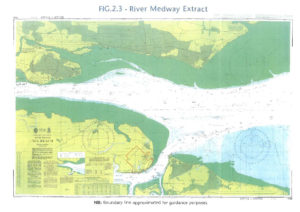 Waterfront/ Coastal industrial development, strategies for Brownfield Development.
Waterfront/ Coastal industrial development, strategies for Brownfield Development.
Project example: National Energy corporation 1000 acre coastal oil refinery site and industrial hinterland.
Project coordination of all multi-disciplinary land aspects including ports, industrial and distribution uses, including logistic issues such as planning provision of road, rail and dockside, and environmental impacts, developing financial and physical options, appraisal and board reporting. This provided substantive evidence that what appeared to be a redundant site had significant value, enabling the Board to conclusive decide on its long term future in their asset portfolio.
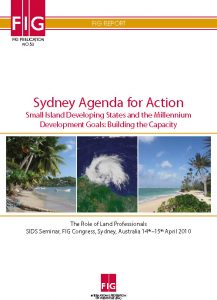 Working on a range of projects involving Coastal policy and advocacy, Coastal economics and regeneration, coastal land and information management, working groups in flooding and marine rights.
Working on a range of projects involving Coastal policy and advocacy, Coastal economics and regeneration, coastal land and information management, working groups in flooding and marine rights.
Project example International Working Group Coastal Settlements and Climate Change (FIG)
Short term Project assignments to improve stakeholder engagement utilising workshops discussing a range of issues including, the economic and social benefits of managing and enhancing environmental sensitive coastal assets and the significance of marine resource management, renewable energy, energy efficiently and conservation technologies the threat of climate change with the aim to influence national sustainable development strategy.
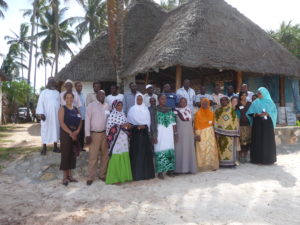 Project example Zanzibar Coastal access and development.
Project example Zanzibar Coastal access and development.
Research and development of a pro poor tool to address coastal land allocation for indigenous coastal communities and FDI, workshop involved scenario planning to the village and Hotel community as a means to broker communication and articulate needs. The result was the bridging of the private sector FDI and local community with government officers enabling them to the take the next steps.
(Photo Zanzibar hotel workshop and scenario planning)
Short term assignments to consider issues specific to SIDs, e.g. to ensure security, climate change at Pacific Islands, Coastal community empowerment, and economic coastal feasibility studies and gender responsive land governance policies.
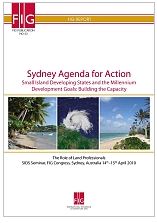 Project - International Workshop designed for Pacific institutional capacity building for Small Island developing States. Project coordination and lead, aiming to reflect on ways in which to proactively contribute to the socio economic transformation of island countries; discussed the importance of land governance in climate change, reforms to meet the needs of the continent including responding to the needs of women; underlining the significant role of local knowledge, traditional leaders and cultural institutions; show cased evidence based policy formulation; and created opportunities for sharing lessons; networking and collation building
Project - International Workshop designed for Pacific institutional capacity building for Small Island developing States. Project coordination and lead, aiming to reflect on ways in which to proactively contribute to the socio economic transformation of island countries; discussed the importance of land governance in climate change, reforms to meet the needs of the continent including responding to the needs of women; underlining the significant role of local knowledge, traditional leaders and cultural institutions; show cased evidence based policy formulation; and created opportunities for sharing lessons; networking and collation building
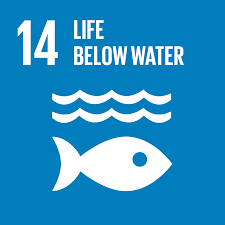 Encompasses the values, polices, laws and institutions by which land and water relationships, i.e water, coastal and ocean space and marine resources are managed. The concept includes both formal and informal arrangements and projects could address policy, research in Water rights and responsibilities in coastal areas and river corridors; including community access, flood mitigation, riparian rights and mediation, River and Recreational Tourism and value of water
Encompasses the values, polices, laws and institutions by which land and water relationships, i.e water, coastal and ocean space and marine resources are managed. The concept includes both formal and informal arrangements and projects could address policy, research in Water rights and responsibilities in coastal areas and river corridors; including community access, flood mitigation, riparian rights and mediation, River and Recreational Tourism and value of water
Project research: the important connection between land and water issues, exploring the interrelationship of every day Land use decisions that shape our water future. Thereby understanding roles and responsibilities of the various stakeholders involved in the use and management to water resources; combined with assessing the effectiveness of mediation strategies for the current and future water needs of people, economy, and environment. It considers surface water, ground water and fluvial water and territorial boundaries. It aims to provide research, innovation, and leadership, and ultimately education initiatives.